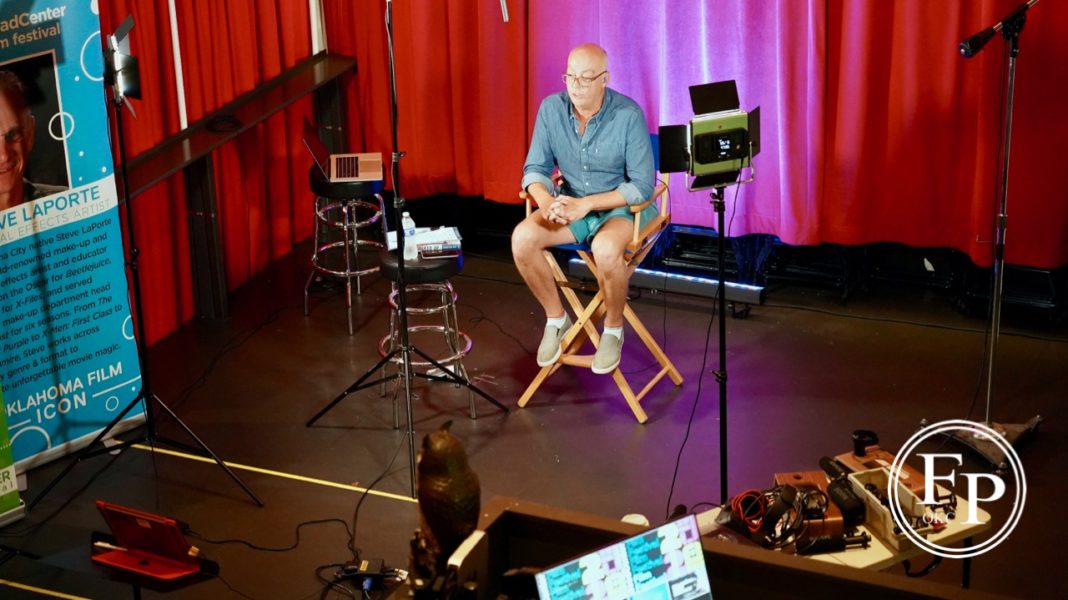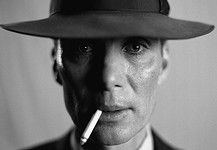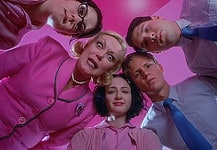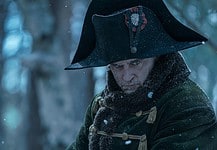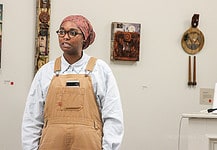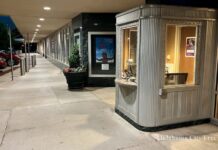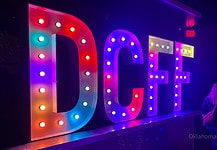Last Updated on June 12, 2020, 12:38 PM | Published: June 12, 2020
As part of its continuing coverage of the 20th annual deadCenter Film Festival, Oklahoma City Free Press will feature three films from the festival each day: a feature-length narrative film, a short film and a documentary.
Today’s roundup focuses on director Shatara Michelle Ford’s Test Pattern, Doug Roland’s Feeling Through and James Erskine’s Billie Holiday documentary, Billie.
Music and film
by Brett Fieldcamp
Sponsored by True Sky Credit Union

The Feature
Test Pattern. Constructed like a horror film set against a tableau of social plagues, Test Pattern explores the nightmare of rape in an era of bad policing, ideological polarization and racism. Inspired by writer-director Shatara Michelle Ford’s experience growing up as an African American woman in a largely white St. Louis, Missouri neighborhood, the film shows how so many societal ills can come to a head in a time of crisis.
Evan (Will Brill, The Marvelous Mrs. Maisel) is a sensitive young tattoo artist who meets Renesha (Brittany S. Hall, Ballers) one night in an Austin bar. After some awkwardness, they finally go on a proper date and quickly fall for one another.
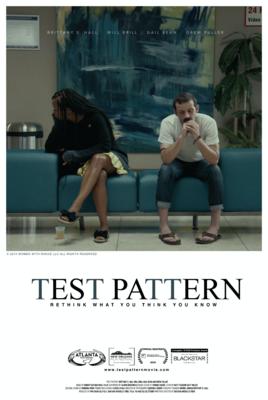
Flash-forward a few years and Renesha has exited a soulless job and found a more fulfilling experience at a local nonprofit. On a night out with best-friend Amber (Gail Bean, Paradise Lost), who is facing soft racism from conservatives in her workplace and needs to talk about her experience, Renesha and Amber get approached by Mike and Chris (Drew Fuller and Ben Levin), who use some ham-handed progressive ideas to get over with Renesha and Amber.
What follows is a relatable horror in which Renesha, the victim of a sexual assault, must navigate a system that is ill-prepared for such crimes and unsympathetic to black women. Will tries to be helpful and sympathetic, but his own internalized hangups about race and sexual politics get in the way of being fully helpful to his girlfriend.
One scene stands out in depicting a potentially fatal flaw in Will and Renesha’s relationship. In what Will thinks is a playful gesture concerning his tattoo work, he reveals a lack of empathy for how Renesha might hear what he says. When it hits, the scene hits hard.
Test Pattern ramps up its tension from the attack onward, as Renesha navigates one bureaucracy after another and Will barely keeps up. Ford delivers a promising debut, one that is less subtle than Jordan Peele’s recent allegorical horror films but gets its messages across with intelligence and empathy.
The Short
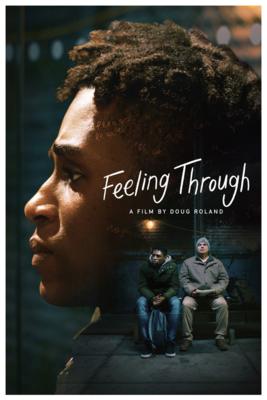
Feeling Through. Tereek (Steven Prescod) is a young man trying to survive New York City through couch surfing in between occasional panhandling, and he is starting to run out of couches as his friends grow weary of his needs. One particularly desperate night, he runs into a deaf and blind man named Artie (Robert Tarango) who needs his own help getting to where he needs to be.
As director Doug Roland’s 18-minute film unspools, Tereek learns more about Artie’s interior life and discovers elements of his own humanity, but not without some pitfalls. Feeling Through was produced with assistance from the Helen Keller Foundation, and while the experiences of deaf and blind people provide the premise, Roland’s film is about finding one’s way to a better life, even if that better life is not easily grasped.
The Doc
Billie. Director James Erskine delivers that rarity among musical documentaries, a film that retains and amplifies the soul of its subject. Billie Holiday’s life is often described with reductive adjectives emphasizing her tragic nature, but Billie, based on interviews that would-be biographer Linda Kuehl recorded in the 1970s, does not fall for the standard narrative. It has truth on its side.
Kuehl, who defenestrated herself through the third-floor window of a Washington, D.C. hotel the night after a 1979 Count Basie concert, recorded hours of interviews with the people who knew Holiday, and the list itself is positively shocking in its star power.
Legendary bassist Charles Mingus, Columbia Records A&R master John Hammond, singer Carmen McRae, not to mention various childhood friends, miscreants and pimps populate this story with insights into the character and mystique of Holiday. The twin tragedies of Holiday and Kuehl’s shortened lives provide resonance and an air of mystery to Billie.
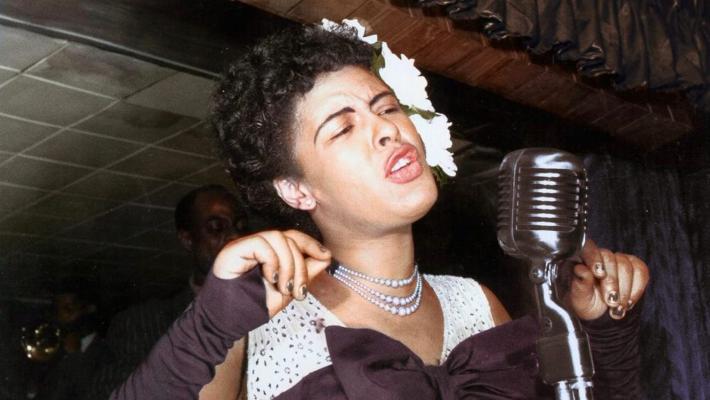
Central to Erskine’s narrative is the campaign against Holiday and other jazz performers by Harry J. Anslinger, commissioner of the Federal Bureau of Narcotics. While her narcotics use was the official reason for Anslinger’s case against her, it was Holiday’s song “Strange Fruit,” an uncompromising ballad about Southern lynchings, that drew the ire of federal investigators.
She refused to stop performing the song, which only fueled the fire of Anslinger and other feds in their efforts to demonize and decimate the ranks of the Harlem jazz scene.
There is an element of demystification to Billie, but Erskine always treats his subject fairly, with sympathy and an expert’s eye for undeniable talent, and he does not shrink from calling out the villains who exploited the masochistic Holiday, including her various ill-willed paramours and the United States of America.
But the parallel story of Kuehl, the journalist who seemed to have come too close to her story and her supporting characters and suffered threats from many of her subjects, only builds more mystery into Billie. And as a haunting coda, Erskine places Holiday’s downfall at the hands of Anslinger and other white men in context, showing how modern police violence, the killing of Sandra Bland and other recent incidents of violence are redolent of a 44-year campaign to silence a lady who sang the blues.
The 20th annual deadCenter Film Festival can be experienced piecemeal or through a full-access plan. Patrons can enjoy one film for $10 or get the $100 festival pass. Donor level passes are $2,500. Visit deadcenterfilm.org
George Lang has worked as an award-winning professional journalist in Oklahoma City for over 25 years and is the professional opinion columnist for Free Press. His work has been published in a number of local publications covering a wide range of subjects including politics, media, entertainment and others. George lives in Oklahoma City with his wife and son.
